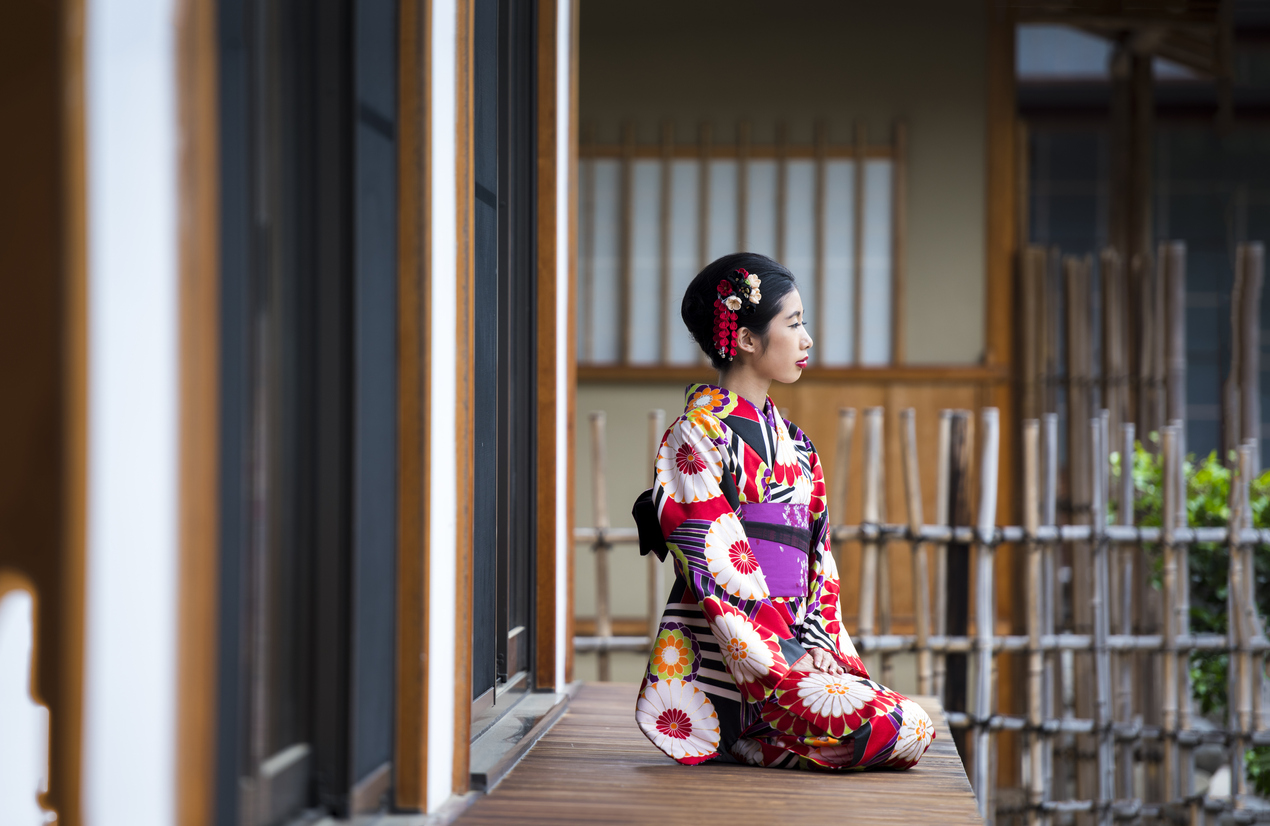In the Japanese language, there are several different words to refer to a woman, but depending on the word you choose, the meaning can be worlds different.
On an evening out with the ladies at a Tokyo bar, an acquaintance jokingly recalled an anecdote in which supermarket staff addressed her as okusan. The word, she said as she impatiently gulped her beer, is incorrect — she’s single (and loves it), is focused on her career and never intends on building a family. But apparently, the simple act of buying carrots automatically placed her in the category of a married woman. While we brushed off the conversation, quick to focus on more important things (wine), the topic kept coming around — making us ponder the etymology behind the many words for “woman” in Japan.
Onna (女)

Formed by three simple lines, the kanji for “woman,” according to Japanese dictionaries, is said to have evolved from the traditional female posture of kneeling with hands folded, the ultimate feminine pose still practiced today mostly at ryokan (Japanese inns).
The word onna is one of the most general and simplified terms used to refer to women and is commonly used in official documents and forms when specifying one’s gender. Used in verbal conversation; however, the word can have an insulting connotation, commonly used to look down on someone or imply either stupidity, sexuality, or bad temper, as in baka onna (stupid woman), hidoi onna (cruel woman), or ii onna (chick), commonly used with a sexual connotation. Interestingly, when praising a woman, it is more common to use hito (person) or josei (female), as in kirei na hito or kirei na josei (beautiful woman).
Fujin (婦人)
If you’ve lived in Japan for a while you’ve probably heard people (aka the media) addressing certain celebrities and classy women as fujin. Dewi Fujin (Sukarno), the loved and hated prima donna of Japanese high society and a regular TV personality, is a prime example. She wears the title because she was married to Indonesia’s first president Sukarno and is able to afford a lifestyle most working women can’t.
Fujin is a term used for women of high status, who are usually married to politicians or important, well-known public figures. It can be translated as ”madam” or ”lady” in English and is a term associated with high esteem and financial affluence. It is also used at department stores for female fashion or goods. Its origin, however, is said to have derived from the combination of the kanji for “woman” and “broom.”
Click here to read more.
- External Link
- https://savvytokyo.com/
 Take our user survey and make your voice heard.
Take our user survey and make your voice heard.















1 Comment
Login to comment
Yrral
Who took the stars, from the skies, and put them in Japanese women beautiful eyes